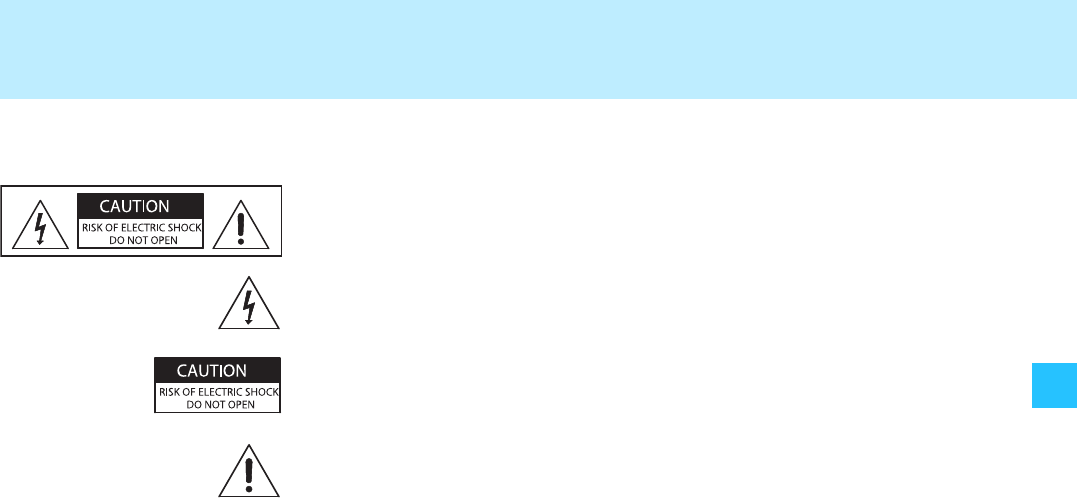
3
Important safety instructions
Hazard warnings on the rear of the receiver
The label shown on the left is attached to the rear of the device. The
symbols on this label have the following meaning:
This symbol is intended to alert the user to the presence of uninsulated
dangerous voltage within the device’s enclosure that may be of sufficient
magnitude to constitute risk of fire or electric shock.
This symbol is intended to alert the user to the risk of electric shock if the
device is opened. There are no user serviceable parts inside. Refer servicing
to qualified personnel only.
This symbol is intended to alert the user to the presence of important
operating and maintenance instructions in the literature accompanying
this device.
Power source
This device should be operated only from the type of power source
indicated on the type plate. If you are not sure of the type of power supply
to your building, consult your dealer or local power company.
Overloading
Do not overload wall outlets and extension cords as this may result in fire
and electric shock.
Replacement parts
When replacement parts are required, be sure the service technician has
used replacement parts specified by the manufacturer or those having the
same characteristics as the original part. Unauthorized substitutions may
result in fire, electric shock, or other hazards.
Safety check
Upon completion of any service or repairs to this device, ask the service
technician to perform safety checks to determine that the device is in safe
operating order.
Danger of hearing damage due to high volumes
This is a professional receiver. Commercial use is subject to the rules and
regulations of the trade association responsible. Sennheiser, as the
manufacturer, is therefore obliged to expressly point out possible health
risks arising from use.
This receiver is capable of producing sound pressure exceeding 85 dB(A).
85 dB(A) is the sound pressure corresponding to the maximum
permissible volume which is by law (in some countries) allowed to affect
your hearing for the duration of a working day. It is used as a basis
according to the specifications of industrial medicine. Higher volumes or
longer durations can damage your hearing. At higher volumes, the
duration must be shortened in order to prevent hearing damage. The
following are sure signs that you have been subjected to excessive noise
for too long a time:
y You can hear ringing or whistling sounds in your ears.
y You have the impression (even for a short time only) that you can no
longer hear high notes.


















